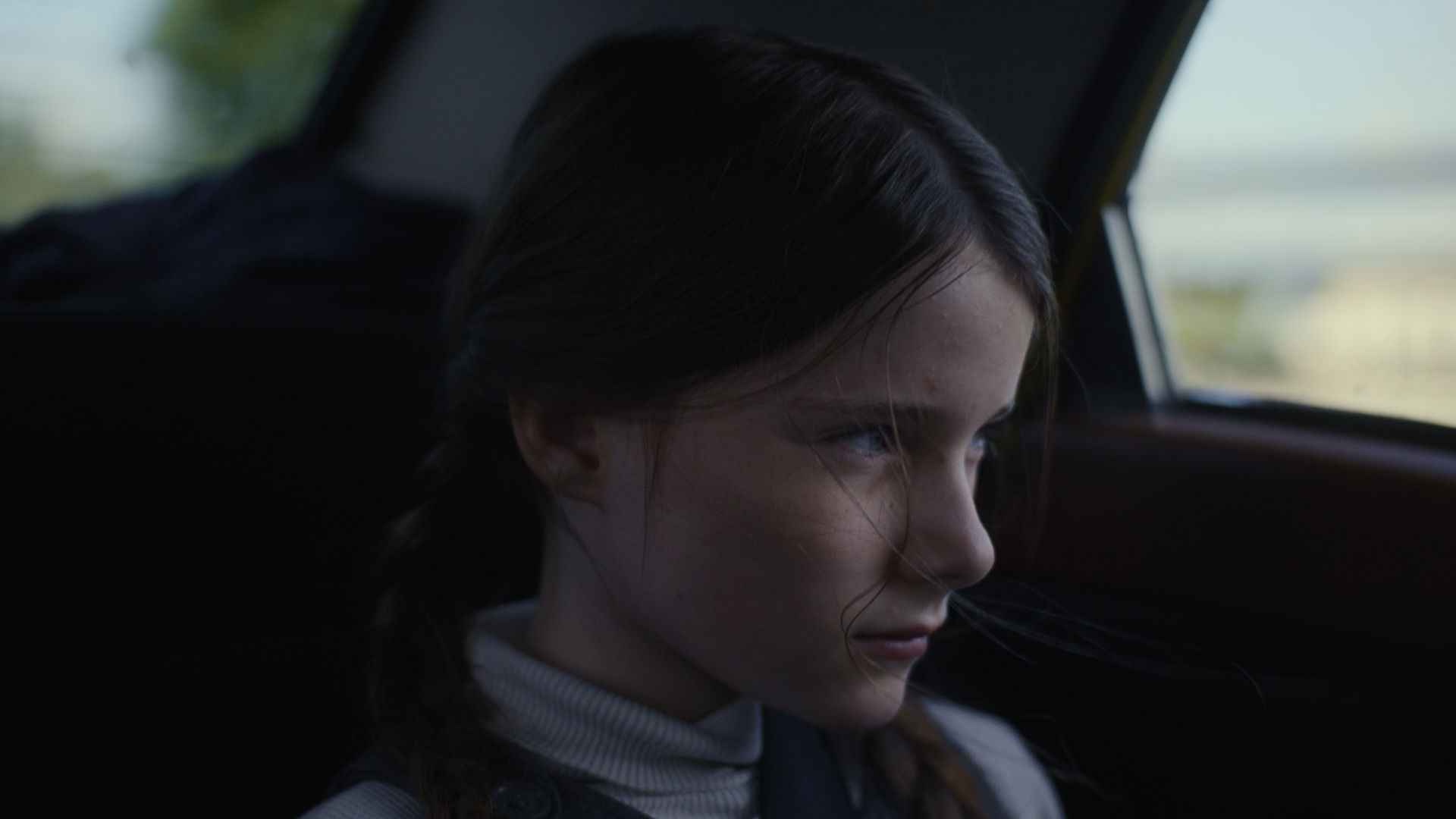Writer-director Colm Bairéad reflects on his history, his language and the part they played in shaping his exquisite debut film.

I’m sitting in an airport terminal in LAX, waiting to take a flight to New York. My body feels a little like my laptop battery, currently at 43%. It’s been a busy week but I’m excited by the time I’ve spent in Los Angeles, the people I’ve met, the film I’m here to talk about. It’s called The Quiet Girl, Ireland’s official submission for the Best International Feature Film category at the 95th Academy Awards and I’ve been here drumming up awareness. Missionaries in a foreign land. This journey began four years ago when I first read a slight, unassuming story called Foster and realised, as I wiped hot, childlike tears from my face at its conclusion, that I’d fallen head over heels in love with it. It was written by the Irish author, Claire Keegan, one of the nominees on the Booker Prize shortlist earlier this year.

The Quiet Girl (2022)
Now that I think about it, ‘missionary’ is not an entirely facetious moniker for a filmmaker – there’s undoubtedly something of the vocational to that endless drive to bring an idea to light, and to the effort involved in finding its ‘flock’. A film is an idea painted with light, witnessed in the dark, that lingers only as a memory. A kind of ghost: intangible, ephemeral, begging to be believed… and remembered. There are films we’ve seen that never leave us, that belong to our deepest inner lives. Foster has now become its own dancing light in the dark as The Quiet Girl and, as with any screen adaptation of a literary work, this film is an act of translation. And an act of faith. As an Irish-language film, there’s also a literal translation taking place too, as Claire’s original was written in English. That said, when I listen to the characters speak in Foster I’m reminded just how much our Hiberno-English is haunted by our indigenous tongue. Ghosts everywhere, it seems.
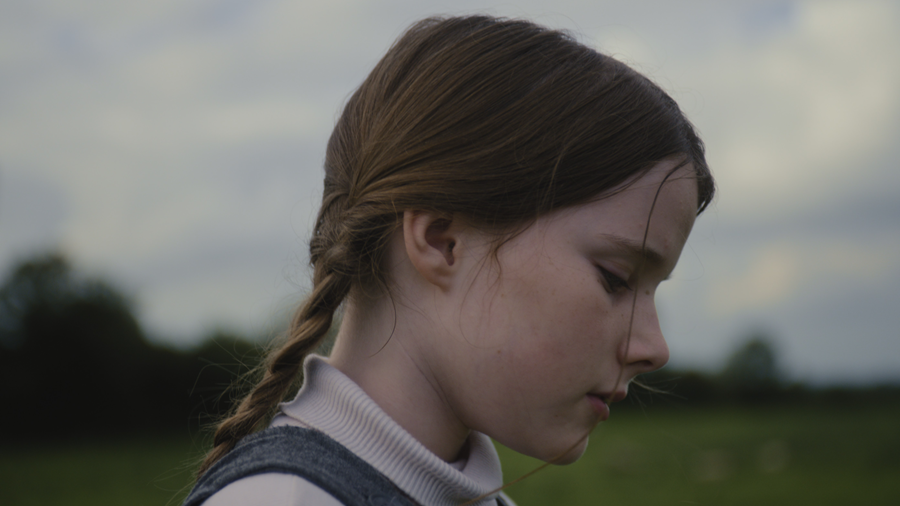
The Quiet Girl (2022)
My father has never spoken English to me, Hiberno or otherwise. He has only ever addressed me in Irish. I grew up in Dublin, far from any of the small, rural enclaves where the language was spoken (and still is, albeit in ever-declining numbers). No-one explained that distance to my father in the 1980s. Before I was born, he founded a primary school in our community in which all subjects were taught in Irish – where my siblings and I would eventually receive our schooling. Before that, he very nearly joined a commune that was being mooted by Irish language activists in north county Dublin, where the Irish language was to be given space to flourish, free from the eroding effect of a dominant foreign tongue. My English-speaking mother, though sympathetic to the plight of the Irish language, drew a line in the sand at the thought of a ‘commune’. And so, our three-bed, semi-detached house was all my father had to work with. A bilingual fiefdom, a compromise, like so much of Irish history. But not all of his subjects swore allegiance to the cause. I spoke English back to him for much of my youth. It hurts me a little now to write that, knowing what lengths he had gone to preserve his language. Yet he never scolded or admonished me. He was patient and kind and simply carried on.
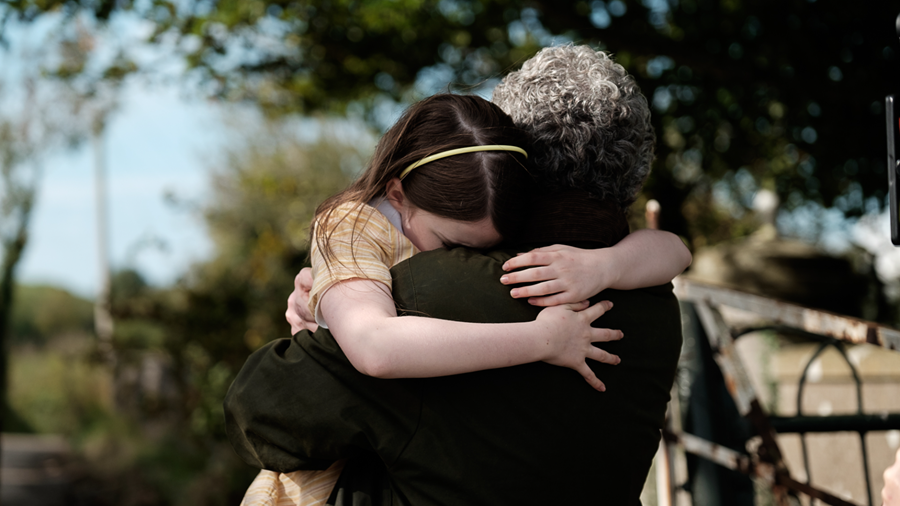
The Quiet Girl (2022)
This act of remembrance, of revisiting the past in writing this, can’t help but draw a straight line to where I’m sitting right now, on the other side of the world with an Irish-language feature film – that language I was once so embarrassed about but in later years came to see as a gift. Like the making of this film. In fact, it’s almost like a child to us (my wife, Cleona Ní Chrualaoi, produced the film) and it feels like we’re holding its hand in support. When we screen in a new country for the first time, we always sit in with the audience, not wanting to leave the film on its own. And yet, as all parents ultimately discover, there comes a point when your child no longer needs your hand. Soon The Quiet Girl will be released in many, many territories around the world. This has never happened to an Irish-language film before. The film has already played for months now in its home territory, crossing €1 million at the Irish/UK box office and becoming the highest-grossing Irish-language film of all time. It is still on release in Irish cinemas more than six months after opening and has become the longest-running film ever to play at the Irish Film Institute, a hallowed place of my youth where I encountered so much of world cinema. The story of our film’s extraordinary journey is almost too overwhelming for me to reflect upon, wrapped up as it is in my own past, my father’s efforts, my coming to terms with my own cultural identity.
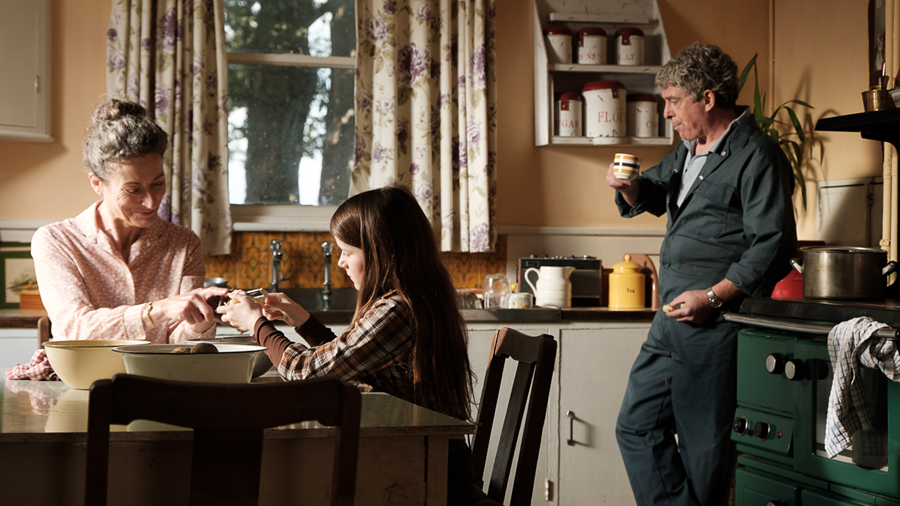
The Quiet Girl (2022)
The Irish language is still listed by UNESCO as an endangered language. The challenge of keeping it alive, of cultivating it as a living language, is a daunting one. I take some courage from the young voice at the heart of our film, the quiet girl of the title, played so beautifully by Catherine Clinch, who barely speaks at the start of the drama, but who finds her voice as she receives the attention and the love that she deserves. When I think about the thousands of young people across Ireland being educated entirely through the Irish language, in schools like the one my father established and in numbers greater now than when I was a kid, I wonder at, and dare to hope, that perhaps our language can follow a similar path to that young girl finding her voice.
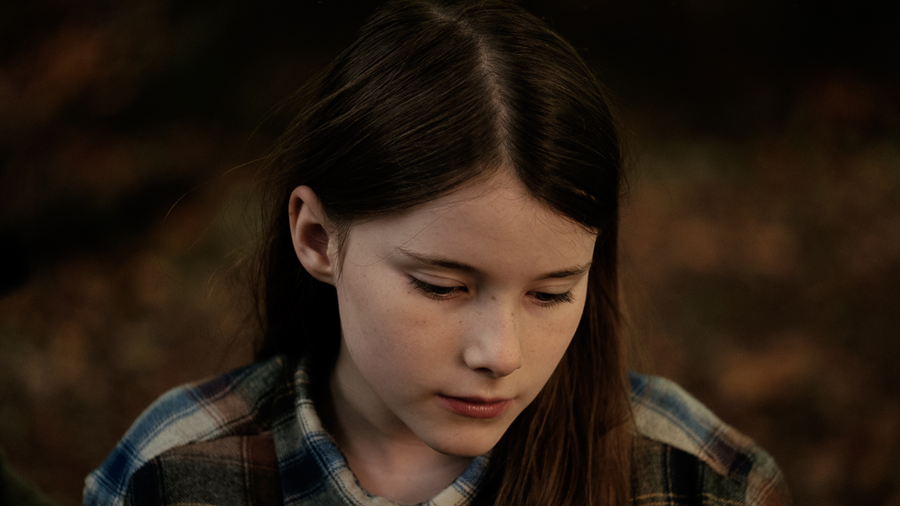
The Quiet Girl (2022)
My battery is now at 28%. Final call for JFK. More people to meet, conversations to start. Cleona was with me for most of this trip but had to leave earlier; I miss her by my side. There’s a beautiful moment in Foster that isn’t in our film but reminds me of her: the girl and her foster father retrace their footprints in the sand on a moonlit beach. At a certain point, the trace of his footprints disappears, leaving only the girl’s. He says to her, ‘You must have carried me there’. Cleona and I have lived every moment of this film together, but there have been times when she has carried me. And perhaps vice versa. In my tired, emotional state, I imagine myself returning home to her and our two young sons, who rush to see me. That will happen soon. And when it does I will embrace them and kiss them and speak softly to them, as I always do, in a language all our own.
The Quiet Girl is available on Curzon home cinema
